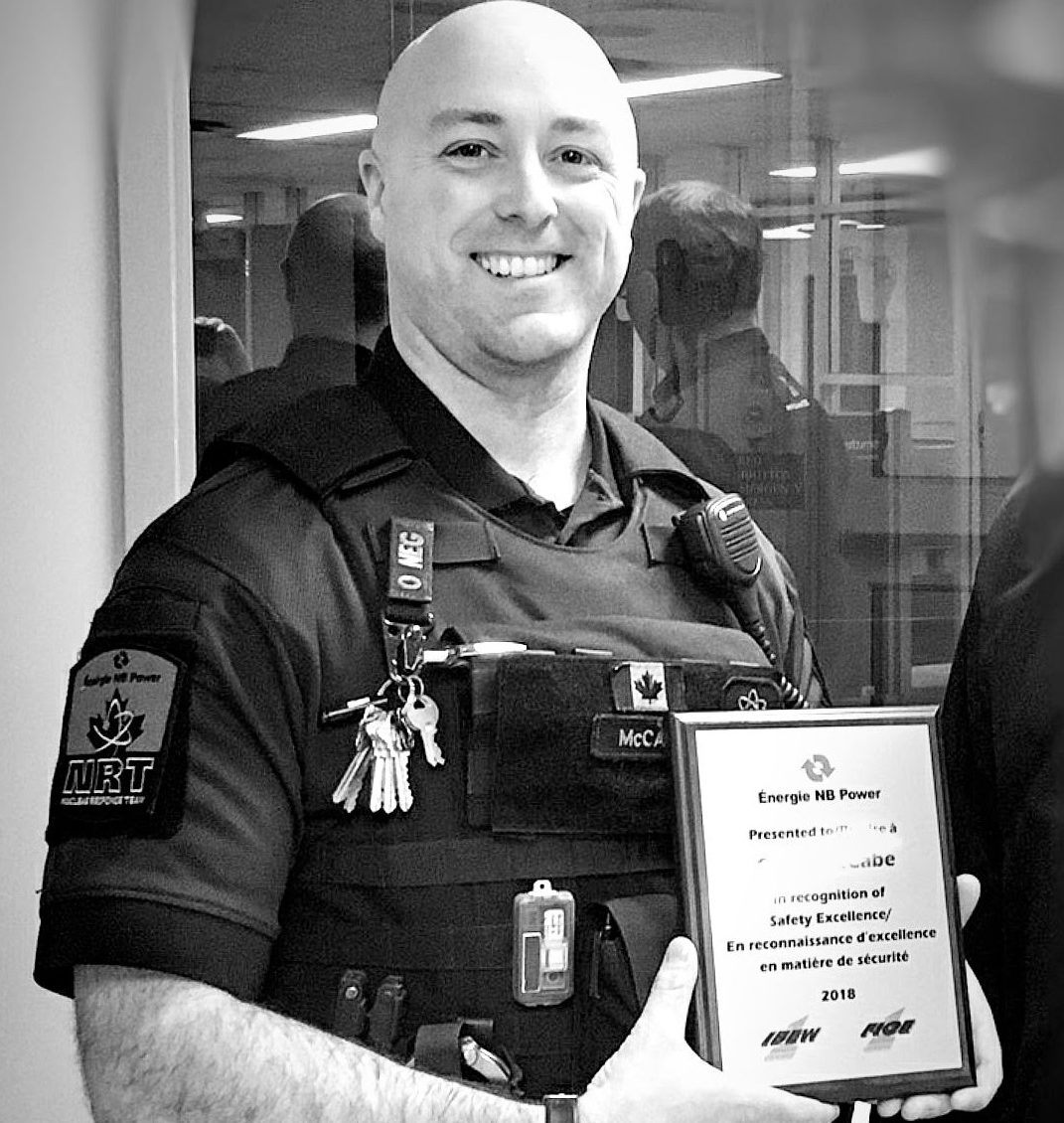“A strong security culture within a NPP or nuclear-related organisation translates to public trust.”
Geoff McCabe, Nuclear Response Team Sergeant at NB Power/Point Lepreau Nuclear Generating Station, shared with us his perspectives on the global nuclear security community and importance of continuous learning. NB Power is the nuclear power company in New Brunswick, Canada. With 14 generating stations, it provides electricity to more than 400,000 customers.
What role does the global nuclear security community play in improving security culture?
The global nuclear security community plays a vital role in improving security culture from the inside out: A strong security culture within a nuclear power plant (NPP) or nuclear-related organisation translates to public trust, and having that trust and support from the public is vital to providing secure, safe, reliable, and low-carbon, nuclear-powered energy into the community. With many countries setting their sights on small modular reactors, our industry needs a solid global nuclear security culture to provide assurances to the public that small modular reactors are a viable next step in nuclear power generation from a security point of view.
What advice do you have for current WINS Academy learners or those considering enrolling?
By enrolling in the WINS Academy, you are taking the first step in acquiring knowledge and information key to ensuring the safety and security of our nuclear industry. WINS Members and Alumni should consider themselves nuclear professionals and strive to continue their learning while sharing relevant information learned through the WINS Academy with their peers and organisations. Having a strong contingent of Certified Nuclear Security Professionals at their facility is of benefit to that organisation, and it demonstrates credibility to outside agencies such as the regulator and/or other governmental and non-governmental oversight groups, World Association of Nuclear Operators, Institute of Nuclear Power Operations, IAEA, etc. It also shows that the NPP or organisation is committed to security and safety through a recognised academy that provides information and learning through industry-leading Best Practice Guides, workshops, webinars and other avenues.
What was your WINS Academy elective? Why did you choose it?
My first WINS Academy elective was Nuclear Security Incident Management, and I chose this module due to its relevance to my current position as a Sergeant within my organisation’s Nuclear Response Team. Part of my role is to act as Security Tactical Command during a design basis threat situation, relaying information up the chain of command. This elective provided me with insights into how to be a more effective Security Tactical Command during an incident.
What inspired you to become a WINS Academy Ambassador?
My inspiration to become a WINS Academy Ambassador came from seeing firsthand the value in the information and resources that the WINS Academy provides to its members. From this, I wanted to encourage my peers and others within our unique industry to consider the WINS Academy as a way to broaden their knowledge for the betterment of themselves and their organisations.
“By enrolling in the WINS Academy, you are taking the first step in acquiring knowledge and information key to ensuring the safety and security of our nuclear industry.”
How can alumni take steps to promote nuclear security certification within their networks and the wider community?
Alumni can promote nuclear security certification within their networks and related community through, for example, peer-to-peer discussions or professional communication avenues such as meetings with other NPPs.
From NB Power/Point Lepreau Nuclear Generating Station:
How has your organisation benefitted from Geoff achieving Certified Nuclear Security Professional status?
One of the biggest organisational benefits is that Geoff has been able to encourage his peers to register and get started on the programme by sharing what he has learned. I completed my CNSP a few years ago and recommended it to others, but Geoff was one of the first frontline Duty Sergeants to really jump on board. Geoff was able to take the courses and see the benefits of what the programme offers.
This morning I spoke to another Duty Sergeant who has recently begun his Foundation Module, and he said he has learned a lot just in the first few chapters. This programme is key to providing our Supervisors with an understanding of how we fit into the nuclear industry on a global scale.
At a meeting I attended in Toronto, Ontario, several years ago, Dr. Howsley stated that you need a licence to be a cosmetician, but anyone can be in a leadership/management role in the nuclear security industry and not require any specific certification training in nuclear security. Although all of our Officers, Sergeants and leadership staff are highly trained, Dr. Howsely’s comment made sense.
-Chris Fields, Emergency Services Manager, Point Lepreau Nuclear GS
“This programme is key to providing our Supervisors with an understanding of how we fit into the nuclear industry on a global scale.”
What role does WINS certification play in your institution’s professional development programme?
The WINS certification programme is a tool that helps to build our members’ knowledge and credibility as nuclear security professionals.
-Chris Fields, Emergency Services Manager, Point Lepreau Nuclear GS
